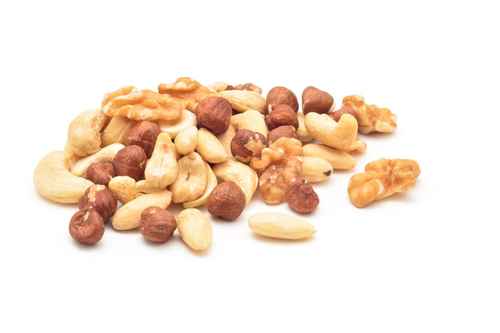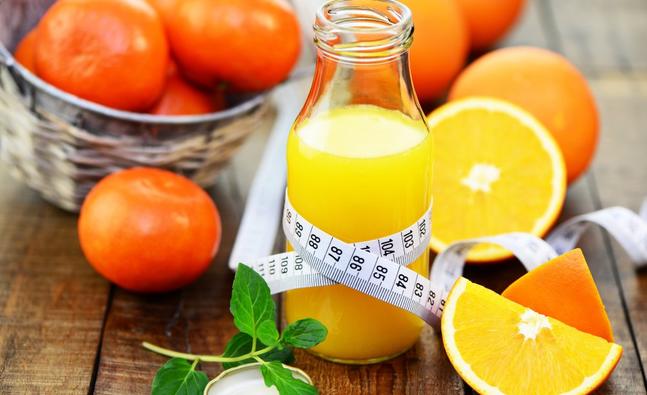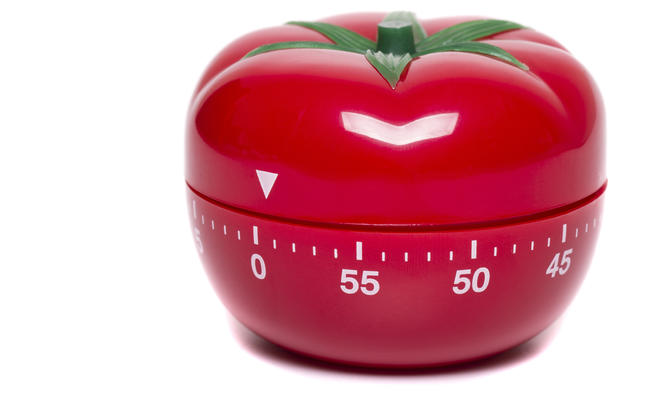7 Ways to Snack for Weight Loss
Your brain is partly to blame when you go overboard on junky snacks, according to new research published in Psychosomatic Medicine: Journal of Biobehavioral Medicine. The study authors used magnetic stimulation to reduce activity in the dorsolateral prefrontal cortexes of 21 women—and when that part of their brain was hampered, so was their self-restraint. They reported more intense cravings for high-calorie snacks and ate more unhealthy food during a taste test.
“The research suggests that the best solution to effective self-restraint lies in maximizing brain health,” say the researchers in a statement. Specifically, they mean things that are probably already on your list, like exercising, not overdoing it with alcohol, and getting enough sleep. Since changing your brain beyond that is tough work, focus on what you can control: how you snack.
MORE: 5 Healthy Late-Night Snacks
Light grazing between meals is essential for a few things: It protects your blood sugar from spikes and crashes, keeps your mood stable, and helps you resist the famished state of mind that makes the office vending machine seem so enticing. "When you eat consistently, you're likely to make better food choices and be able to control the actual amount that you eat," says Keri Glassman, M.S., R.D., a Women's Health contributor. "Going into a meal ravenous means you’re going to go for things that aren't as good for you, and you won't listen to your body." Studies have even shown that eating between meals can improve your cholesterol, boost your cognition, and keep your metabolism running smoothly. Follow these tips to harness the full power of snacking.
Think: Protein, Healthy Fat, and Fiber
Ideally, each snack you eat will have a combination of these three nutrients. "A snack is an excellent time to make sure you’re getting enough protein, healthy fat, and fiber," says Glassman. "Together, they’re very beneficial for your body." Protein delivers a surge of energy (say goodbye to that 3 p.m. slump) and helps keep you full. Healthy fat and fiber only compound the satiety effect, holding you over until the next time you eat. "Don't worry about exact calories, but aim for the 150 to 200 range," says Glassman. Think: an apple with some almond butter or veggies with hummus.
MORE: Top 28 Best Healthy Snacks
Focus on "Real Food"
"People hear the word 'snack' and think it has to come out of a bag or a box," says Glassman. Not the case! "Think of a snack as a mini meal," says Glassman. "It can be half a turkey wrap you didn't eat at lunch or some leftover salmon from the night before." Things like bars can be great, but don't limit yourself if your body wants more—or something different. As long as it's a healthy serving that will cut your hunger and help you make better decisions later, it counts.
Always Be Prepared
Raise your hand if this scenario sounds familiar: You don’t have time to make a snack in the morning, only to be hit with a craving after lunch. That makes it pretty hard to resist your colleague’s birthday cupcakes. The key to avoiding these surprise calorie bombs is thinking ahead. "Have prepared snack portions at home, in your glove compartment, in your bag at work, and anywhere else that’s just within reach," says Glassman. When you've peppered your environment with healthy options, you don't have much of an excuse to resort to something you'll regret later. Try preparing all your snacks for the week in one go. When you’re rushing, you don’t have time to portion out a baggie of nuts and seeds. But grabbing something that's already been prepped on your way out the door? Much easier.
MORE: 8 Brain-Boosting Snacks You Can Stash At The Office
Sit Down When You Can
The beauty of most snacks is how portable they are, so this may seem counterintuitive—but the thing is, it works. "So often we eat on the go, but plating your food, sitting down, and really savoring it is much more satisfying," says Glassman. Basically, treat your snack with the respect it deserves! Sitting and focusing on a snack the way you would your dinner reduces distractions and helps you be more mindful of how much you're taking in. That awareness leads to eating more slowly and paying more attention to your body's satiety signals, so you can stop as soon as you've had enough.
Hydrate As You Go
This is an opportune time to get some much-needed liquid into your system. "Coupling your snack with a glass of water or cup of tea helps you view it more as a meal," says Glassman. Taking breaks to sip on something will also stop you from mindlessly chowing down because it breaks up the repetitive hand-to-mouth motion. Plus, it will help you fill up faster than you would otherwise.
MORE: The 42 Healthiest Portable Snacks
Pay Attention to Packaging
Despite what we said above about thinking of snack as a mini-meal, there's nothing wrong with going for some pre-packaged snack food every once in a while. "There are many healthy brands doing things like popcorn and seaweed chips," says Glassman. Just be aware of what's real nutritional information and what can be chalked up to marketing. "Look for options that have as few ingredients as possible, and make sure you actually know what they are," she says. "For example, if you're buying veggie chips, they're often just potato chips and there's nothing really veggie about them." Assess the labels, and go for the products with the fewest ingredients you can find. Bonus points if they already come in individual packages so you don't have to worry about portioning them out.
Listen to Your Body
"People think there are set times you need to snack, but there aren't," says Glassman. Tune in to your hunger signals rather than forcing yourself to stick to a schedule. "Some days, you might need one snack, some days you might need three. Sometimes you may need one post-workout, other times you'll have a full-on meal after. It all depends." Your body is good at telling you what it needs, so make a practice of listening to it. If you're jonesing for another helping immediately after you polish off your snack—and you're worried you might be about to overeat—hold off for 20 minutes before you have at it. If you still don't feel satisfied after giving your body a chance to process the food, you'll know that you truly need the nourishment.
MORE: 5 Post-Workout Snacks You Can Throw in Your Gym Bag
-
The perfect weight-loss pantry: Say ‘No’ to sandwiches
-
10 LITTLE KNOWN FACTS ABOUT CELLULITE
10 Little known facts about cellulite The first thing that you
-
Lose Fat with Body Confidence!
One of the most popular goals is to lose weight. That’s a very t
-
Brooke Burkes healthy family breakfast shakes
-
How many calories do you burn while vacuuming?
-
4 Ways to Lose Weight on Vacation
This article was written by Emily Abbate and repurposed with permissio
- DON'T MISS
- Link between long term weight control and hypertension
- The Persistent Thought Women Have That Makes Them Gain Weight
- 4 Things I Wish I Knew BEFORE I Started Losing Weight
- Tight, Toned Tummy Tips: Badass abs are built by squats
- Reduce fat around the waist
- Why is exercise good for weight loss?
- The Easy Steps That Helped Me Lose More Than 175 Pounds
- Unforgettable fibre
- How Kim Kardashian Plans to Hit Her Post-Pregnancy Goal Weight of 120 Pounds
- Venus Factor Weight Loss Program Review – Everything You Need To Know




